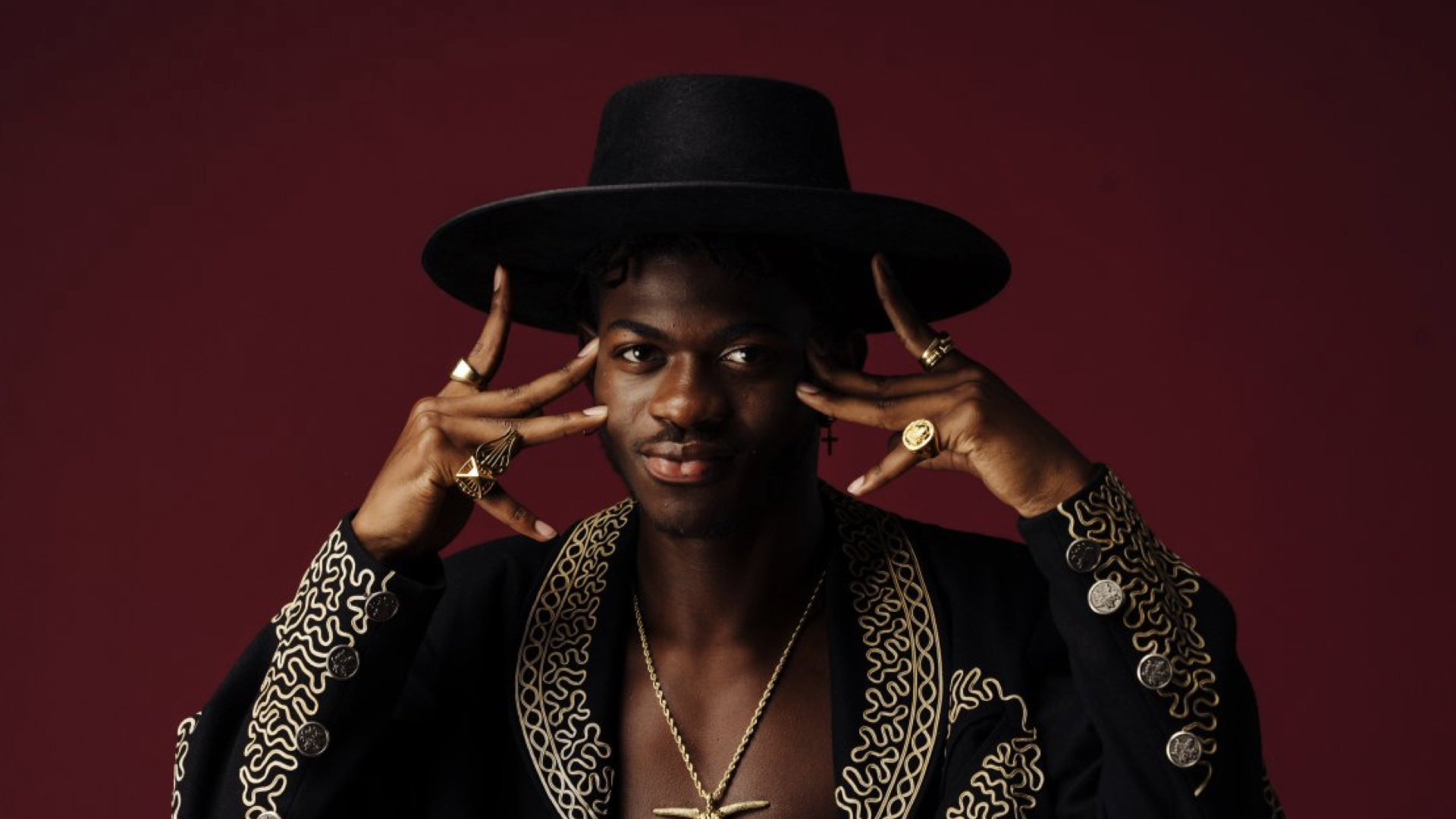In his own words, Lil Nas X’s career could be best summed up by a Tweet he posted on October 2, 2021: “life is so crazy. 5 years ago i used to just sit on twitter in my room all day but now i’m rich and i sit on twitter in my room all day.”
We’d like to add that, uh, he’s done quite a lot more than reveal the inner workings of his brain on Twitter for the past five years; he’s now the frontrunner for the title “the most relevant celebrity in 2021”. And by that we mean that he has such a firm grasp on how social media works that he doesn’t just start cultural moments or have several viral hits trending on TikTok at once, he seems to control the narrative all on his own terms. Naturally, he didn’t start from a place where Dolly Parton posts about how much she loves his cover of “Jolene” or staging the birth of a child for the launch of his album Montero.
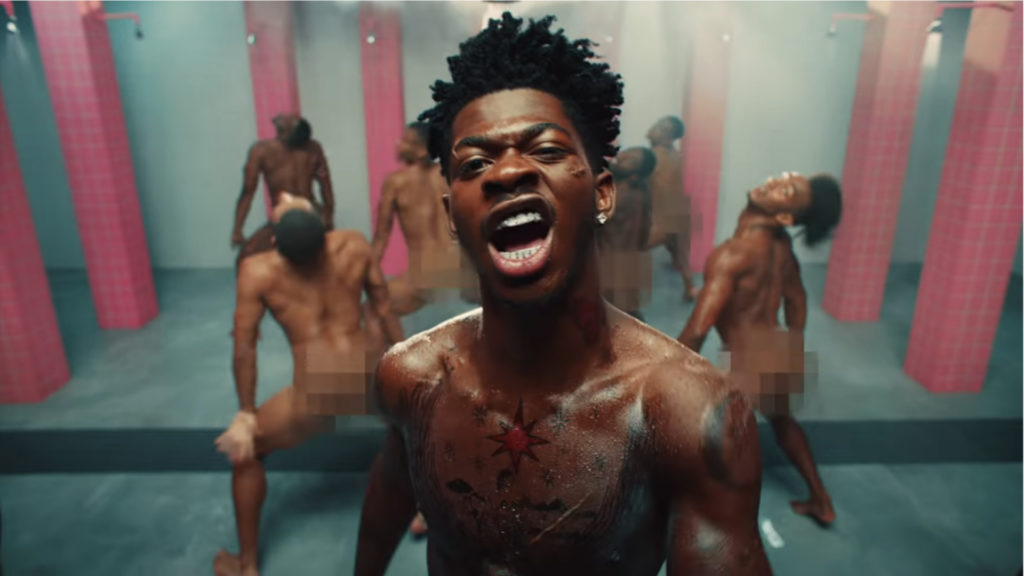
But Lil Nas X did, in fact, get his start on Twitter.
Long before “Old Town Road” dropped, he was just an anonymous teen living in Atlanta (born with the given name Montero Lamar Hill), who just so happened to be running a Nicki Minaj stan account, @nasmaraj. It might sound twee but Lil Nas X racked up hundreds of thousands of followers as he was tweetdecking, a style of Twitter users that promote each other by coordinated retweeting and the reposting of other viral memes or tweets. @nasmaraj was eventually deleted when Twitter held an audit of sorts, purging their site of tweetdecker accounts, but it was clear that this was where the star picked up a lot of his internet fluency, nuance and understanding of virality.
At age 19, Lil Nas X dropped out of college and started pursuing a career in music. At the time, that meant uploading some tunes to Soundcloud and hoping people would listen. Then, in 2018 he came across a beat on BeatStars created by YoungKio, a 19-year-old Dutch producer; Lil Nas X paid $30 for it (nevermind the fact that YoungKio used a sample of a Nine In Nails song, “34 Ghosts IV” without buying the usage rights) and began writing “Old Town Road.” The song dropped in December of that year and the artist had a clear goal with the song that was a hybrid of country and trap themes: It was going to be huge.
Trending on TikTok was no mistake.
“It was the first song I genuinely formulated,” he told Rolling Stone in an interview just a year later. “I was like, ‘I gotta make it short, I gotta make it catchy, I gotta have quotable lines that people want to use as captions.’” It took a few months, but Lil Nas X’s plan started working. “Old Town Road” inspired the “Yee Haw Challenge” to spread like wildfire across TikTok in March, causing users to transform in mere seconds from their normal selves into cowgirls and cowboys. It was that use of the song that catapulted “Old Town Road” onto the Billboard 100 Charts, debuting at No. 83; then Columbia Records came calling and signed Lil Nas X within a week.
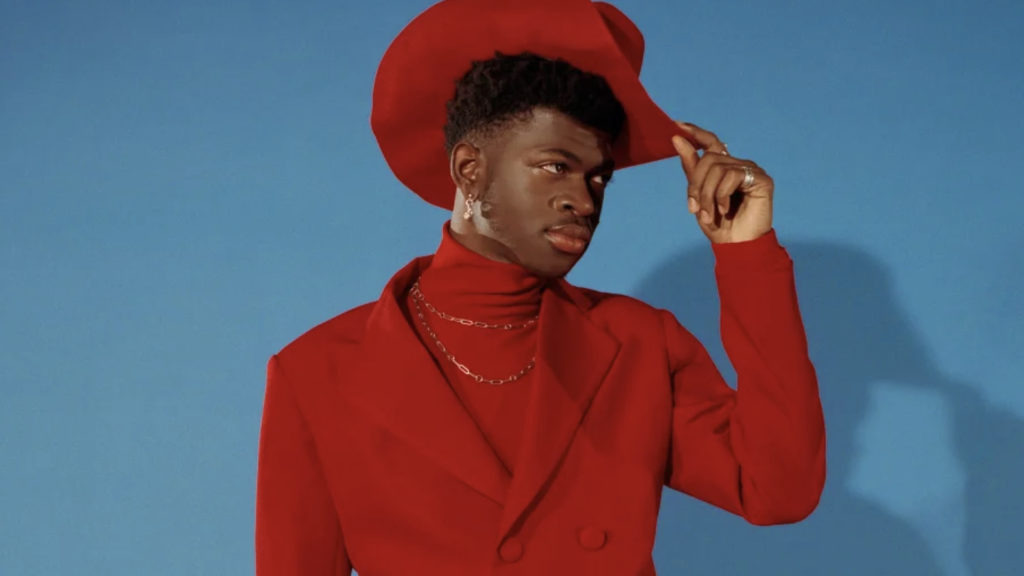
But there was some drama on the charts. “Old Town Road” was ranking on both the Hot Country and Hot R&B/Rap categories, and Billboard didn’t think it was fit for the latter category, so they quietly removed it from that list. Some artists might’ve been discouraged by such a move—and its racist undertones—but not our favorite internet star. An early Twitter plea he made for Billy Ray Cyrus to collaborate on the song came true in April 2019. Now the song that was previously labeled as “not Country enough” featured one of the genre’s biggest stars and shot up to the No. 1 spot on the Billboard Hot 100, where it stayed for a record-breaking 17 months. It was, in a word, legendary. And so was the music video to accompany this remixed song, which included cameos from the likes of Diplo, Chris Rock, Vince Staples and even the OG producer, YoungKio.
Now well on his way to widespread fame, Lil Nas X had the foresight to step on the gas. While listeners were still streaming “Old Town Road” obsessively, he dropped 7, an EP that included hits such as “Panini” (which credits Kurt Cobain as a composer) and “Rodeo.” That album dropped in June 2019 but was hardly the biggest moment for Lil Nas X that month because he publicly came out as gay, coinciding his message with the last day of Pride month. Naturally he used Twitter to make the announcement, encouraging people to give a closer listen to the lyrics of “c7osure.”
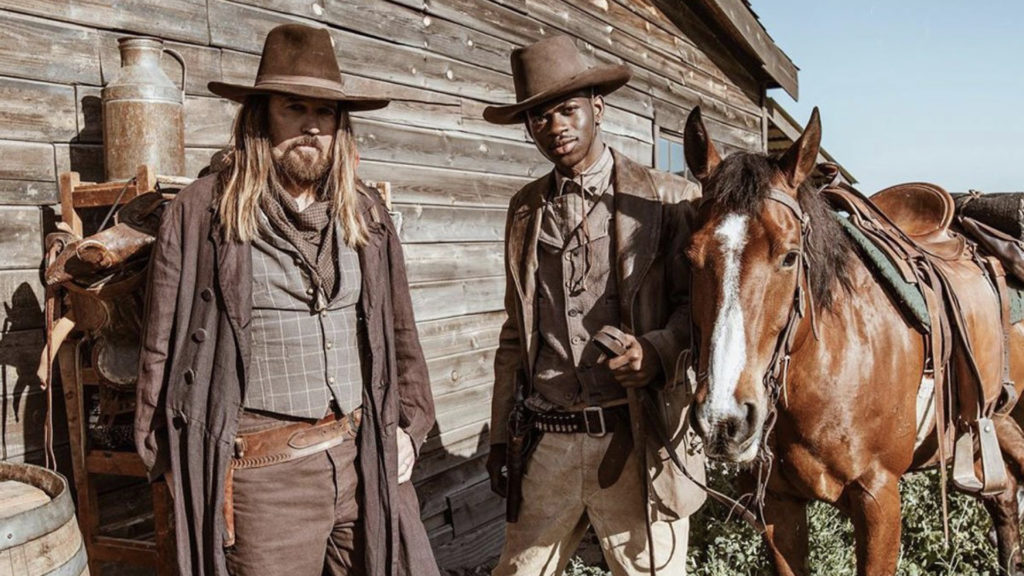
A marketing genius that prioritizes the social ecosystem.
While other artists create and consider the rollout strategy of their next album as a lame marketing requirement, Lil Nas X considers how the public’s reaction to his work plays into the bigger picture. Whether that’s a user generated meme, TikTok publicly acknowledging that his song has achieved “domination of the TikTok trending ecosystem” or an angry reaction by a Fox reporter, well, even better. As Complex put it, “he’s one of the best internet marketers we’ve ever seen in music.”
Which explains why Lil Nas X spent nine painstaking months creating a marketing plan for “Montero,” his latest album that was so deeply enriched with viral moments that it’s almost overwhelming. It seems to have kicked off when he teased “Montero (Call Me By Your Name)” on Twitter in July 2020 and “Industry Baby” in October 2020 on (you guessed it) Twitter, as well. But it wasn’t until the following spring, when he amped up his promo for “Montero” that things really started to get spicy.
That’s when he teamed up with MSCHF, a creative agency known for viral fashion stunts, to create an accessory that played up the satanic themes of the Montero” music video. The two created 666 pairs of “Satan Shoes,” which were simply reworked Nike Air Max 97s that featured a drop of human blood. The collab immediately sold out, sparked immense outrage among prominent conservatives and Christians on the internet and led to Nike filing a lawsuit against MSCHF (the suit has since been settled and Nike has recalled the kicks, though we really doubt anyone handed over the $1,018 sneakers).
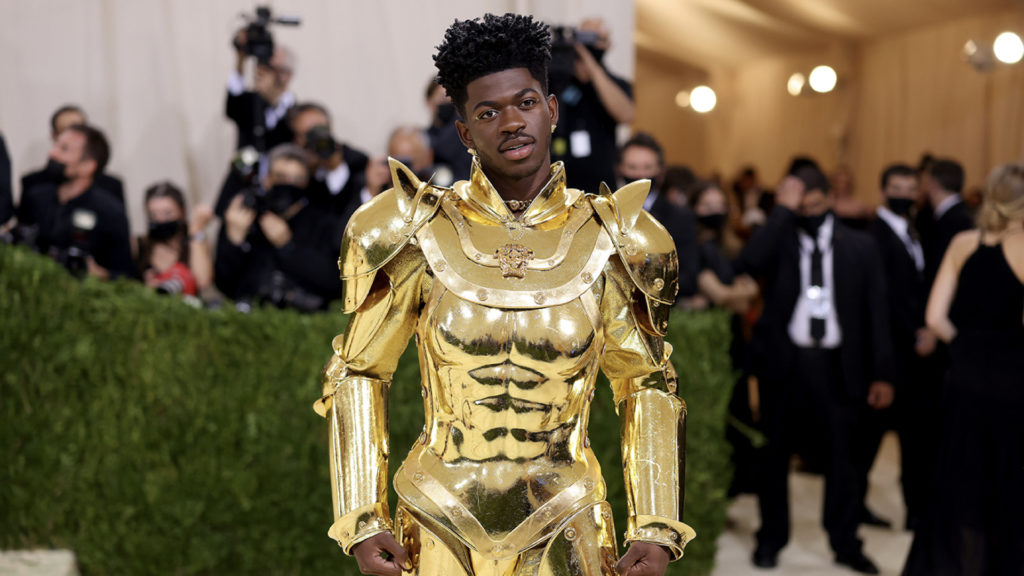
And if you thought that was enough viral stunts for one album, you’re sorely underestimating this very online genius.
There was the fake apology video for the sneaker snafu…that was actually a promo for the “Montero” music video and the various versions of the song that he dropped on Twitter: the one that sounded like you were listening to the song from the bathroom of a club (title: MONTERO but ur in the bathroom of hell while lil nas is giving satan a lap dance in the other room), one where Lil Nas X is silent the entire time, and the song reworked as a lofi tune (title: but it’s lofi and something you can study to lol).
Then there was the faux pregnancy (in order to troll Drake and his Certified Lover Boy album art, created by Damien Hirst) with the birth being the actual arrival of Montero. There was also a series of billboards that poked fun at Lil Nas X’s most homophobic and conservative critics and The Montero Show, a YouTube parody talk-show in which the singer played both the talk show host and the guest in order to parody basically his entire career.
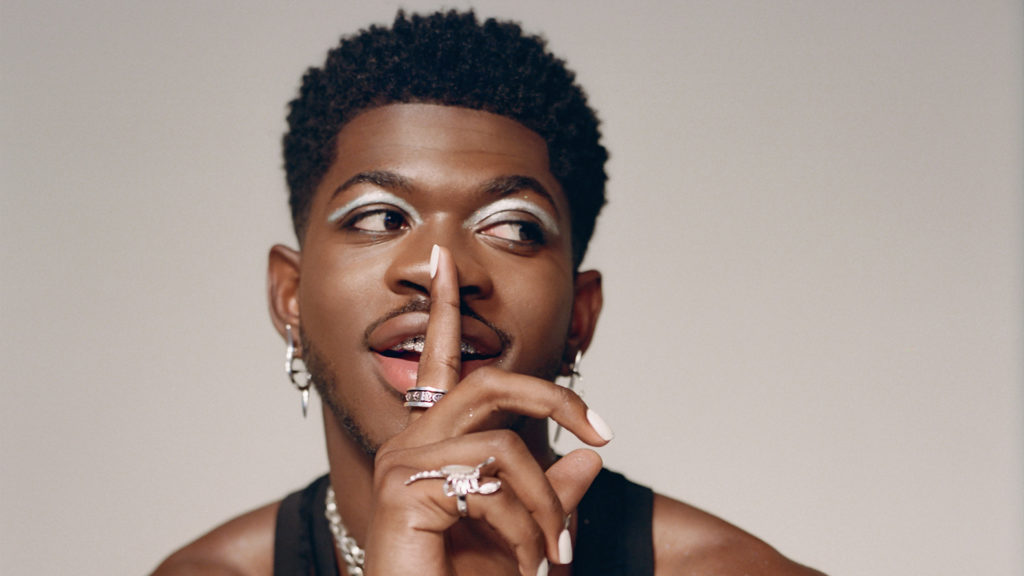
From new takes on old school marketing tactics and ingenious use of nearly every social media platform, Lil Nas X has surpassed being just an artist to watch. He’s an artist who is charting a new course in the music industry, mostly because his viral moments feel genuine and in touch with what music listeners want today—and he’s delivering a full 360 immersive experience. The devil might work hard, but Lil Nas X works harder.
Let’s Talk